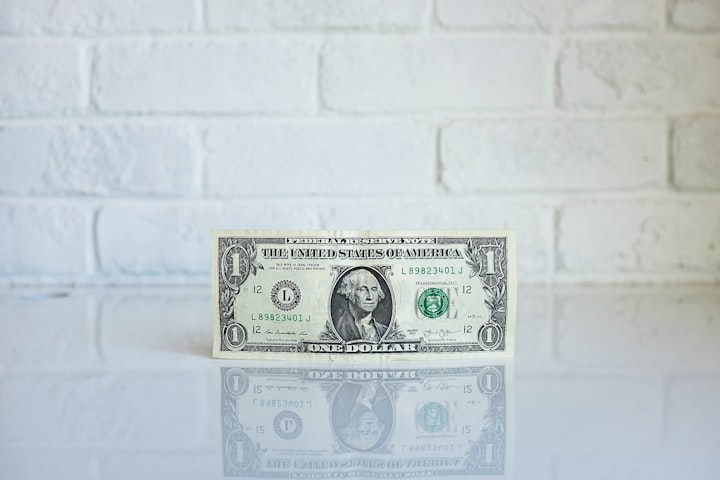Quitting my job was a leap of faith
And it seems to be the "Hero's Journey" of the 21st century
Today, there is the emerging rhetoric that "No one wants to work." But that's an age-old spin-job, akin to calling the working class lazy. Actually, people are learning to "just say no" to wages that in some cases are designed to keep workers below the poverty line.
An article in the New York Times titled, The Myth of Labor Shortages, put it this way:
Is the U.S. suffering from a labor shortage? If so, capitalism has an answer: Large supply of jobs, no demand? Simple, raise wages. Supply and demand 101.
https://www.nytimes.com/2021/05/20/briefing/labor-shortages-covid-wages.html
Money is a core problem these days. Another is stress. Stress is why I left my job five years ago, even though it meant turning my back on a high income.
In my previous life, I was a web developer in the financial services industry. The money was avaricious, but I couldn't live with myself. I had to stop. I guess you'd call it a mid-life change-of-heart, a crisis of conscience.
I left my career without looking back, but living with the courage of my convictions was not an easy road to travel, but well worth it, in the end. Leaving my security (and my nice house in the suburbs) behind was a commitment to take back my identity and find a way to live a life in alignment with my beliefs.
This does seem to be the "Hero's Journey" of the 21st century. How do we carve more fulfilling lifestyles out of a consumer society? I know several people today who are getting their ducks in a row and preparing to leave their careers ~ some very high paying.
Finding a way to live with the courage of my convictions was a far more difficult journey than I realized. Like the middle-school program from the 1990s, I dared to "Just say No." Ironically, one of the things we were taught to say no to back then is legal now.
Society's values change. I decided that determining what's healthy for me is, well, up to me. Living by the courage of those convictions was harder. So now what?
I was single when I took the leap of faith, so I didn't have a partner to rely on for income. But I had planned ahead, had a savings account, went through the steps to get any debt consolidated, and had paid off my car.
The kind of deep soul searching I did for five years might not be for everyone, but perhaps some of the strategies I used to leap off the hamster wheel might be beneficial to others.
I lived in an Ananda Marga (Hindu) spiritual community in Eugene, Oregon for a year, where I did a lot of meditation, soul searching and exploration. That year, I lived on $500 / month, which was 1/3 of the mortgage payment I used to make.
It wasn't about the money. Rather, it was about making different choices, living a different, healthier lifestyle. Adopting a much more minimal lifestyle was a refreshing reprieve from the world of suburbia and stress.
In a world of over-consumption, "non-participation" in consumerism can be a revolutionary act and a valuable contribution to a society living in obese abundance. Let's get off the hamster wheel of over-consumption and over-production. Gandhi used the word Ahimsa, which means "non-violence." The symbol for Ahimsa is a hand known as the Hamsa which seems like it's right up in your face, saying, "Stop! Talk to the hand!" Materialism and consumerism are addictions, and I believe we need to develop some kind of Twelve Step Program to change those behaviors. When will the intervention come? When we hit rock bottom? Only non-participation can ultimately save us.
"Everything in moderation" is a good motto. We've come so far in the so-called First World that we seem to have lost touch with what being moderate means. It boggles my mind that we continually produce bigger and bigger vehicles.
I honestly believe the model of a single-income household is a healthy one ~ but certainly not along gender lines. Significant lifestyle changes that might seem uncomfortable at first are required. They are ultimately healthy choices.
I was single when I left my career and started making these choices.
Today, my partner and I live on one income. I met her along the way. Without making the choices I made, we never would have met. That's the leap of faith part: that something, something, will work out. But believe me, there were many nights when I prayed and prayed and prayed.
Please, let something, something, work out. I had no idea what I was doing, what direction my life was going. I never once regretted leaving my old lifestyle and stressful career behind, yet the path ahead was impossible to see.
Today, my partner has one of those mythological jobs that she loves and that pays a reasonable salary. In that, we're extremely blessed. But those jobs should not be hard to come by!
The more and more people who take a stand against non-living wages, the more the economy must change. This was the principle behind the "Labor Movement" of the 19th and early 20th centuries. Unions are out of favor these days, which leaves us just a few choices. One good choice is to re-evaluate our lifestyles so that we can just say no and walk away when the time is right.
That journey is not an easy one, as I well know. There are significant economic factors stacked against us no doubt. But I am truly curious how many other people could find creative ways to make a single-income household viable?
Can we adopt more of an attitude of "non-participation" in materialism? I truly believe that transitioning to working less is essential for our sanity, to reverse the negative impacts on the environment, and to a higher quality of life.
Check out my first story in this series: Setting Boundaries @ Work
As well as: Are Single-Income Households feasible?

About the Creator
Thomas Tortorich
Author, Publisher:
Listen to the "Stories from the Future" podcast
Speaker:
The Birds & Bees of Climate Change
Positive Futurism emphasizes a sustainable future and cooperative, inclusive culture ~ fiction & nonfiction







Comments
There are no comments for this story
Be the first to respond and start the conversation.